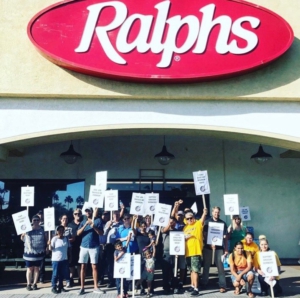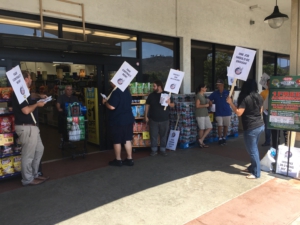
On Aug. 30, a picket line of workers assembled at Ralphs on Jamacha Road in San Diego. The demonstration was organized by the United Food and Commercial Workers Local 135, a union representing around 1.3 million grocery workers. The picket was to be the last of about 20 taking place daily since Aug. 21 at Ralphs stores at several locations across San Diego County.
Organizers informed Ralphs customers of their plan to strike depending on the outcome of the workers’ contract negotiations. The contract expired on March 3, and they have set a deadline of Sept. 9 to negotiate a new one before voting to strike. Despite their efforts, the supermarket chain has given barely any concessions. According to one Ralphs worker, Dahna, the company has offered to raise wages by only 40 cents an hour, which is hardly an improvement to their original offer of 25 cents. Dahna said they deserve a living wage, because “[we] workers are the ones that put the food on the shelves for people to buy.”

The demands of the workers are simple, yet they are still being forced to fight cover basic necessities such as food, rent and childcare. Many folks present on Aug. 30 were working people who ardently support the union’s demands. Many customers support the union, especially because many of them shop at Ralphs regularly and have built personal relationships with the workers. The solidarity was strong — from cars honking and drivers cheering, customers wishing good luck to the workers, and the comradery felt on the picket line.
UFCW 135 has demonstrated that unions empower workers to fight back against the exploitation inherent in capitalism. Unlike the capitalist system of the United States, socialism would prioritize workplace democracy and provide for the majority, rather than exploiting workers to generate profits for a wealthy few.
We must stand in solidarity with the grocery workers in their struggle to improve their livelihoods — especially if they decide to strike, as they did for four months in 2003 in what became the largest grocery worker strike in U.S. history.






